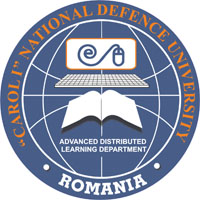ADAPT2JOBS - A NEW LEARNING ECOSYSTEM
ADAPT2JOBS - A NEW LEARNING ECOSYSTEM
Author(s): Manuela EPURE, Ruxandra Vasilescu, Lorena Clara MihaesSubject(s): Education
Published by: Carol I National Defence University Publishing House
Keywords: Adapt2jobs; e-learning; labour market-oriented courses; Mind Map; flipped classroom method
Summary/Abstract: Adapt2jobs is a project financially supported by the Romanian Government and the European Social Cohesion Funds, with a view to investing in human resources. It simultaneously aims at developing a package of labour market-oriented courses, and at transferring them into the virtual space offered by e-learning technologies. To do that, brainstorming sessions with important recruitment representatives were organized, which resulted in a Mind Map describing the employers' requirements. The course package proposed by the experts is especially tailored to meet these requirements. It is structured on three domains: social sciences, economics, and art and architecture. Its digital form is meant to construct a new learning ecosystem, as the students who are part of it will not only improve their knowledge of the particular domain where they are enrolled, but their learning skills, creativity and effectiveness will be enhanced. The proposed courses are approached by the 'flipped classroom' method, thanks to the special e-learning portal developed during the project, a form of learning which focuses more on the students' better understanding and ability of application of the knowledge provided online. The students study the contents of the uploaded course and in class they ask questions and apply the acquired theoretical knowledge guided by the teacher. Thus, the teaching/learning process is a more personalized one, as each student benefits from the specific guidance relevant for him/her. It is a method that draws from and fosters the concept of 'active learning', reversing the traditional lecture-homework method to the best interest of the student. Both individual research and team effort of solving problems is encouraged, with a considerable contribution of student's creativity.
Journal: Conference proceedings of »eLearning and Software for Education« (eLSE)
- Issue Year: 11/2015
- Issue No: 01
- Page Range: 53-60
- Page Count: 8

